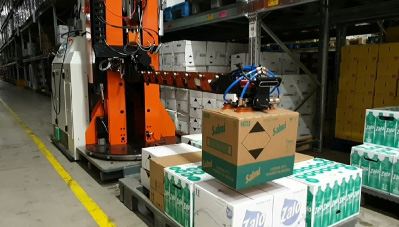Optimization and Learning for Warehouse Logistics

In wholesale warehouses items arrive from manufacturers on standard-sized pallets in single-item stacks, which are stowed away in the warehouse. Items are then retrieved and stacked in mixed-item stacks according to customer orders before they are transported to the stores. The retrieval and restacking related activities are co-dependent, and jointly considering up- and down-streams operations is key to aid and/or replace hard human labor with robots. OWL will address the lack of algorithms for solving these complex problems that prevent further development and implementation of digital solutions and feasible and affordable autonomous systems in warehouse operation.
Within this context there are various learning-based challenges that are suitable as master projects:
- Reinforcement learning for stacking pallets. Train an algorithm that can decide where boxes should be placed on the pallet given an item order. Alternatively, train a model that decides which order is likely to yield high quality pallets.
- Combining machine learning and optimization. Apply machine learning to speed up repetitive optimization tasks. E.g. speeding up pallet packing algorithms by learning to predict the quality of the resulting stack. Here we also experiment with reinforcement learning formulations of optimization problems.
- (Bayesian)-Hyper-parameter tuning for stacking algorithms.
The projects can be adapted to students from several departments such as Computer Science, Mathematical Sciences or Engineering Cybernetics.

